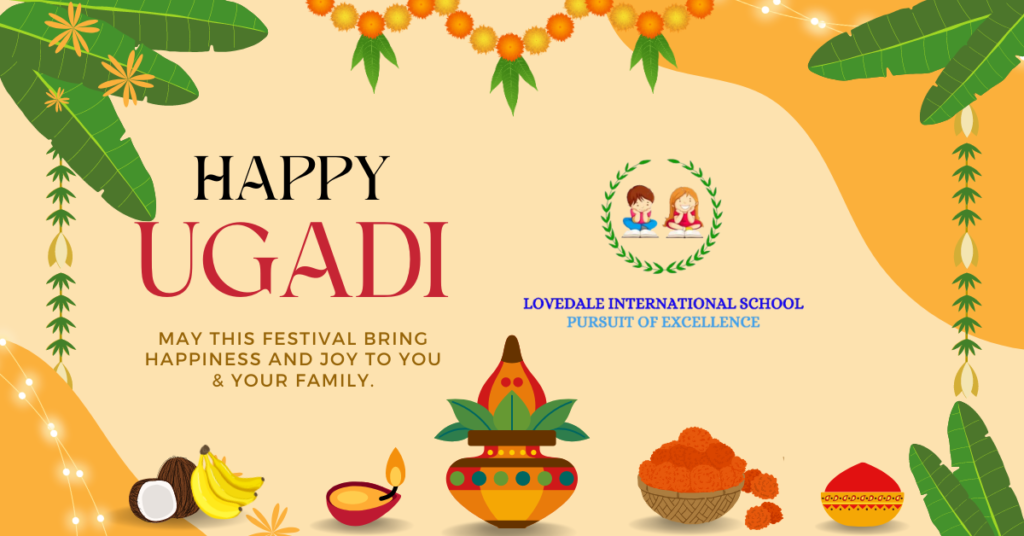
Eid al-Fitr, commonly known as Ramadan Eid or Ramazan Eid, is a pleasant and significant Islamic celebration observed by Muslims worldwide. It falls on the day after the new Moon is visible at the end of the month of Ramadan and marks the start of Shawwal (the tenth month on the Islamic calendar). It concludes the holy month of Ramadan, a time of fasting, prayer, and reflection. Along with Eid al-Adha, it is one of the two main festivals in Islam.
Table of Contents
The Meaning of Eid al Fitr
Eid al-Fitr comes from the Arabic words “Eid” meaning “festival” and “Fitr” meaning “breaking of the fast.” The festival of breaking the fast is a time of joy, gratitude, and generosity, when Muslims gather to remember the rewards of the previous month and beg forgiveness for past mistakes.
Traditions of Eid al-Fitr
Eid al-Fitr is celebrated with a variety of traditions and customs differ from region to region. However, Muslims throughout the world practise some common traditions.
One of the most important Eid al-Fitr customs is the charitable donations and sharing of gifts (Eidi). Muslims frequently give charity to those in need, spreading their benefits to others. This gesture of charity is an important component of the Eid celebrations, representing the Islamic faith’s fundamental principles of compassion and empathy.
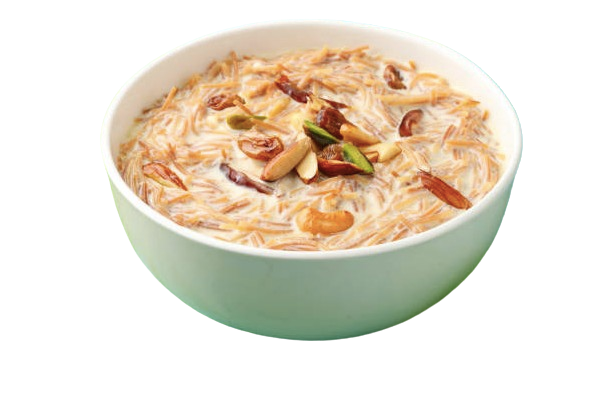
Eid al-Fitr also includes the preparation and sharing of food. Muslims meet with family and friends for a good time that includes foods like Sheer Khorma, a sweet vermicelli pudding cooked with milk, sugar, dates and dried fruits. Food sharing represents unity and community, bringing people together in an atmosphere of joy and celebration.
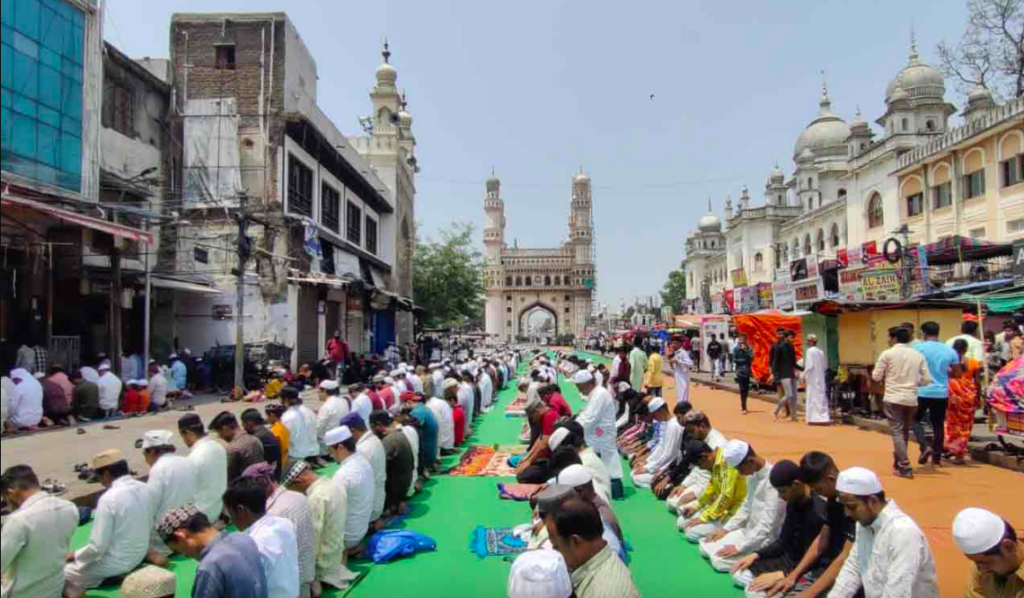
Eid al-Fitr is also a time to worship and ponder. Muslims gather at mosques for special Eid prayers, where they express gratitude for the benefits of the past month and seek direction for the future. The Eid prayers are followed by a speech (Khutba), in which the imam preaches peace, unity, and compassion, followed by a unique prayer. By this time, muslims are expected to have made their endof-Ramadan donation to charity – known as Zakat-ul-Fitr or Fitra – to help feed the poor.
In addition to its religious significance, Eid al-Fitr is a day of celebration and joy. Muslims frequently put on their nicest clothes, visit family and friends, and exchange greetings and well-wishes. The festival is a time to gather together in a sense of togetherness and community, to reflect on the blessings of the last month and look forward to the future with hope and optimism.
Eid Al Fitr Celebrations
Eid al-Fitr is widely celebrated with zeal and joy. Muslims frequently begin the day with a special Eid breakfast such as Sheer Khorma with dates.
After breakfast, Muslims gather at the mosque or Eidgah for Eid prayers. Following the Eid prayer, people frequently visit family and friends to exchange greetings, eidi, and well-wishes. It is also common for children to receive either money or small gifts from their elders.
What do you say at Eid?
To wish someone well at Eid, you can say “Eid Mubarak“, which means “Blessed Eid” or Taqabbalallahu minna wa minkum – this expression means “May Allah accept (practice) from us and from you“
In the Middle East, you may also hear “Eid Saeed” which simply means “Happy Eid“.
What is Ramadan?
Ramadan is the ninth month of the Islamic calendar. It has a special significance in Islam.
It is during this month that Muslims believe the first verses of the Quran (Islam’s holy book ) was revealed to the Prophet Muhammad ﷺ (peace and blessings of Allah be upon him).
Why do Muslims fast?
Fasting during Ramadan is one of the Five Pillars of Islam, which lay the basis for how Muslims are required to live their lives.
The other pillars are the profession of faith, prayer five times a day, zakat – a form of charity, and making the pilgrimage to the holy city of Mecca once in their lifetime.
Fasting is meant to encourage spiritual reflection.
Muslims have an early morning meal before dawn, known as suhoor or sehri.
During the day, they are not supposed to eat or drink anything – including water – until after sunset, when they break their fast with an evening meal, called iftar or fitoor.
Some Muslims are, however, exempt from fasting. They include children who have not reached puberty, pregnant or breastfeeding women, menstruating women, those who are ill or whose health could be affected by fasting, and those who are travelling.
Conclusion
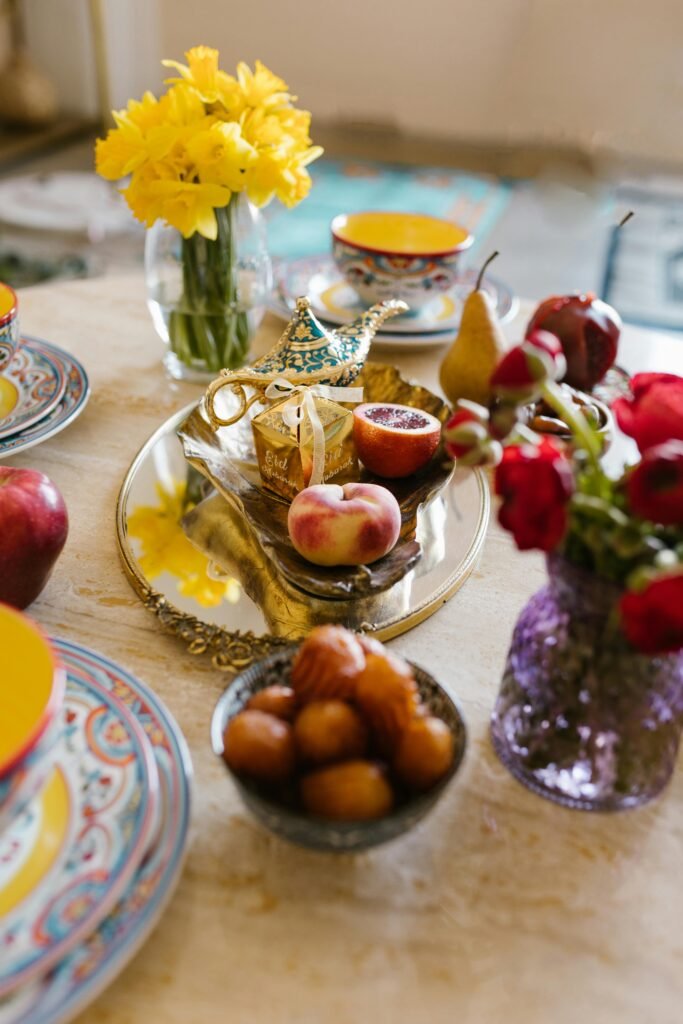
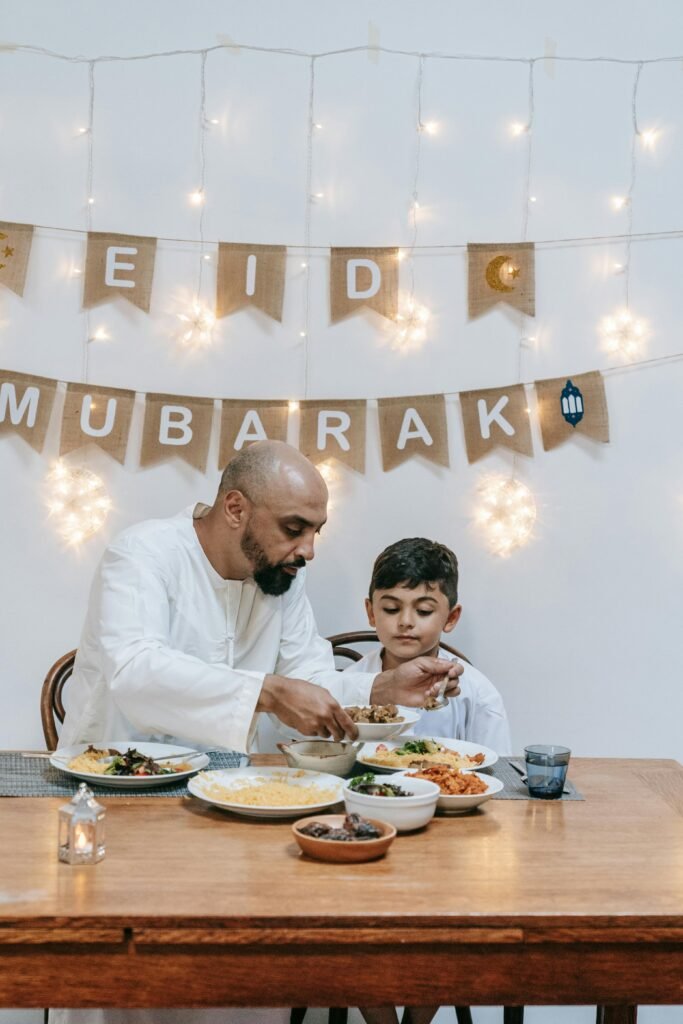
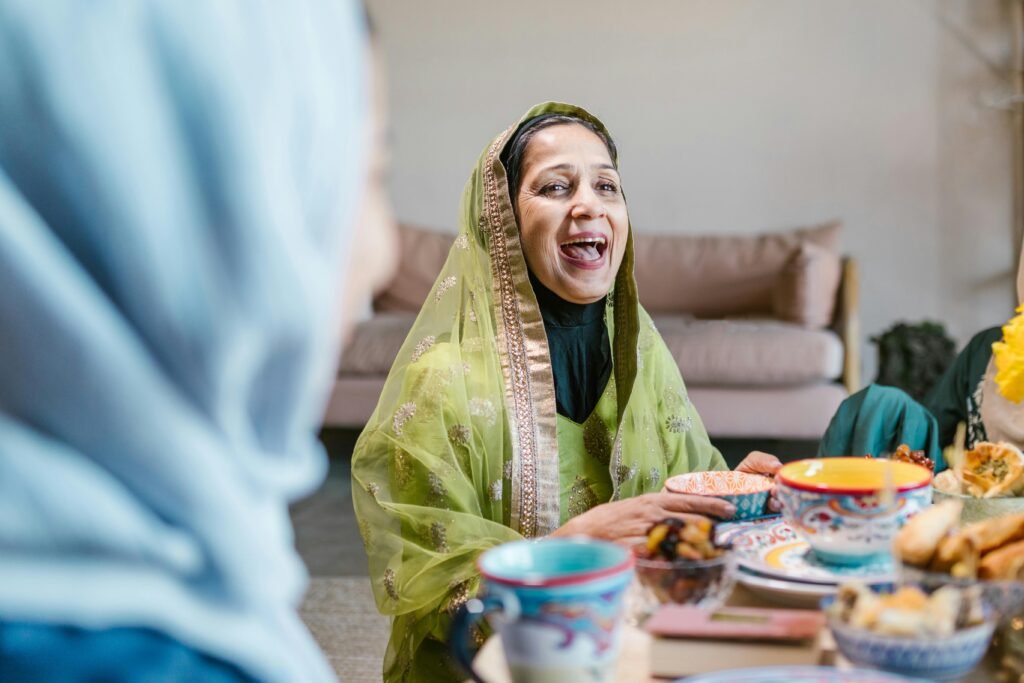
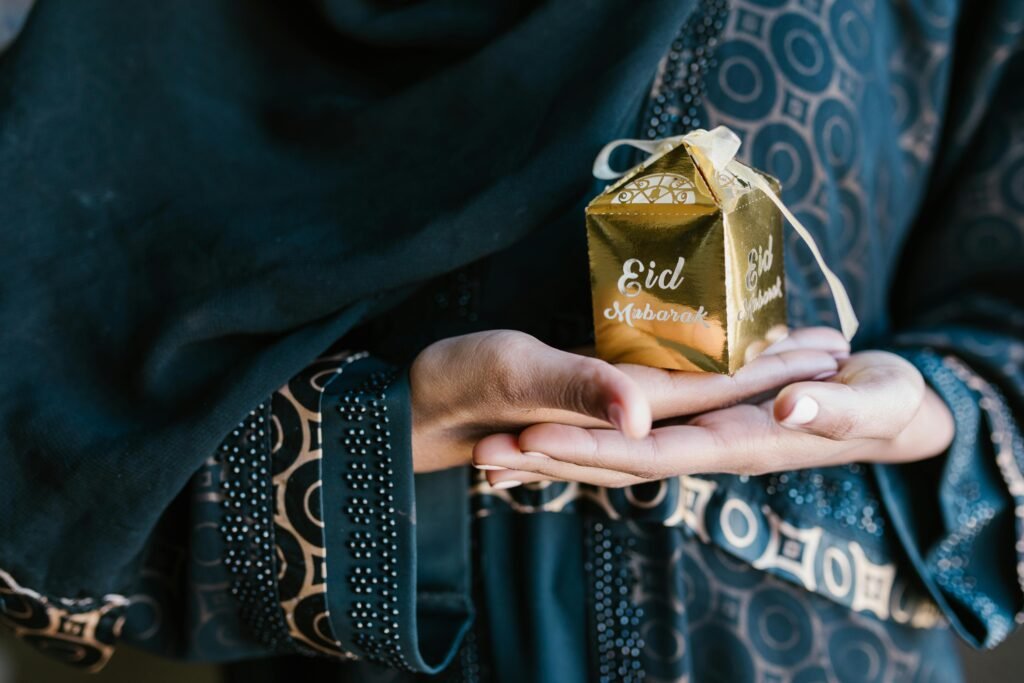
In a nutshell, Eid al-Fitr is a pleasant and momentous Islamic celebration that commemorates the end of the holy month of Ramadan, or Ramazan. Eid al-Fitr, with its traditions of gift-giving, meal sharing, prayer, and meditation, is a season of joy, appreciation, and generosity that brings Muslims together in a spirit of togetherness and belonging.
As we celebrate Eid al-Fitr, let us remember the core values of the Islamic faith: compassion, empathy, and charity. Let us gather in a spirit of togetherness and community to remember the benefits of the last month and let us unite in a spirit of community and unity.
Read our related post on What is Ugadi? here.
Stay connected with us on our social media channels: Facebook and Instagram.
Mohammed Moin Ul Hassan is a digital educator with a degree in Mechanical Engineering, bringing a unique perspective to the field of education. While he has not worked as a mechanical engineer, Mohammed has diverse experience in entrepreneurship and business management.
With a background in various entrepreneurial ventures, including owning and operating successful businesses in the restaurant and car rental industries, Mohammed has honed his skills in leadership, customer service, and business development. His entrepreneurial spirit and business acumen have shaped his approach to education and innovation.
Currently, Mohammed is preparing to launch his digital tutoring platform, where he will share his expertise as a digital educator. His focus on digital education, content marketing, and digital marketing reflects his commitment to leveraging technology to enhance learning experiences for students.
Mohammed’s dedication to student success, innovation, and entrepreneurship is evident in his work and interactions with students, colleagues, and the community. He is passionate about creating engaging and impactful educational content that inspires and empowers learners.
When he’s not working, Mohammed enjoys traveling, trying new foods, and exploring the great outdoors. He is always up for a new adventure and is always looking for ways to expand his horizons and learn new things.
Connect with Mohammed Moin Ul Hassan on LinkedIn and Facebook

